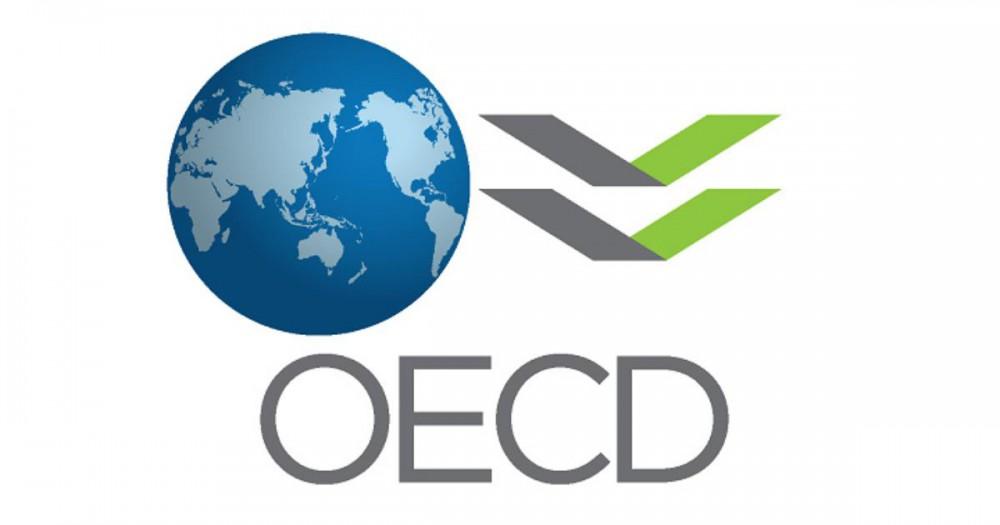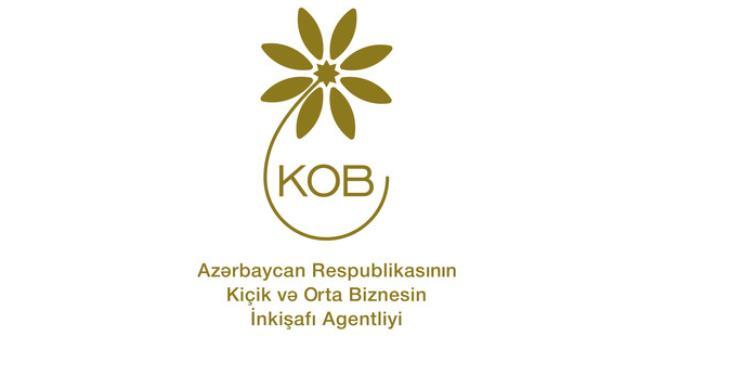How is digital transformation promoted in Azerbaijan? Review by Caliber.Az
Diversification of the non-oil economy and its rapid integration into the world economic system is the most important goal of the reforms implemented in Azerbaijan. As the world experience shows, the strategy of new industrialization is implemented in parallel with the digital transformation, the introduction of IT technologies in business processes and the management of both large enterprises and small and medium enterprises (SMEs). The promotion of digital development and SME support is the focus of the Ministry of Economy of Azerbaijan, which actively cooperates on these issues with international organizations. The Organization for Economic Cooperation and Development (OECD) is one of such organizations, with whom the plans to create the Cooperation Council has recently been discussed.
It is not surprising that such close attention is rendered to support SMEs in Azerbaijan. Because, the share of micro and small businesses accounts for about 97.4% of all entrepreneurs operating in the country. In addition, this sector provides jobs for about half of the working population. It is encouraging that the EU has joined the programs aimed at supporting small businesses in our country and has allocated about €2 billion for these purposes, as well as for the development of "green" technologies and other innovative directions. Thus, the EU's funding instrument is expected to cover about 25,000 businessmen. EU grant assistance to the Azerbaijani government for €5.25 million in the framework of the Administrative Agreement on the Instrument of Technical Assistance (AZTAF) signed in mid-February of this year serves similar purposes. These funds will be used to support institutional reforms in accordance with the national priorities of the country, including initiatives that contribute to the growth of the non-resource economy and expand market opportunities for businesses.

At the same time, Azerbaijan also intends to expand its partnership with another influential structure formed mainly by European countries - the Organization for Economic Cooperation and Development (OECD). Today, the agenda of Azerbaijan's cooperation with the OECD includes the most topical issues: diversification and digitalization of the non-oil economy, implementation of the best practices in the development of SMEs, greater transparency and accountability in the tax field, expansion of cooperation within the Eurasian Competitiveness Program, and joint implementation of other innovative projects. These and other issues were discussed the day before during the meeting of Economy Minister Mikail Jabbarov with the head of the Eurasia Department of the OECD Secretariat for Foreign Affairs William Thompson.
Expressing the interest of his organization in expanding ties with Azerbaijan, Thompson said that the implementation of joint initiatives and projects is primarily aimed at the development of small and medium-sized businesses in the country. During the meeting, the two sides discussed the compliance of the EU "Small Business Act" in the Eastern Partnership countries, as well as the issue of establishing the Azerbaijan-OECD Cooperation Council.
It is appropriate to recall that the OECD has acted as a consultant and provided technical assistance in the framework of EU-funded projects aimed at improving competitiveness and innovation in SME activities. The beneficiary of these projects was the Small and Medium Business Development Agency (KOBIA) under the Ministry of Economy of the Republic of Azerbaijan, which continues cooperation with the OECD in the new project "Promotion of Digitalization of Small and Medium Enterprises".
"The development of digitalization of entrepreneurship is considered a crucial component in the development of the business ecosystem in Azerbaijan, and an unprecedented breakthrough has been achieved in this regard, especially in the regions of the country. Not so long ago, digitalization in Azerbaijan was developing at a slow pace, but today local businesses have noticeably expanded their presence in the online environment," OECD expert Patrick Pruzinsky said at a field-specific event held in Baku in February. According to him, the OECD, in cooperation with Azerbaijan, supported the strengthening of digitalization of small and medium-sized businesses, moreover, today specialized centers are created with the support of KOBIA in the regions, which promote entrepreneurship, including through the use of electronic resources. According to OECD estimates, within the framework of the development strategy "Azerbaijan-2030", the online activity of SMEs is indicated as one of the promising business areas. There is a need to create a special plan for the development of entrepreneurship in this direction, as well as make efforts to form a new IT infrastructure in the regions, accelerating the shift to modern technology.

Nevertheless, OECD experts believe that despite some progress, the process of digital transformation of the business environment is quite uneven, and there is still a significant gap between Baku and the regions. One of the current problems is the lack of a national cybersecurity strategy. On the other hand, the use of electronic signatures by local entrepreneurs is still very limited. Moreover, while the implementation of digital technologies is quite successful in the banking and large corporate sector, the implementation of such solutions is still underrepresented in the SME segment.
The determining factor in the digital transformation of society is its pace and the completeness of the coverage of commercial structures and public institutions with Internet services. And here Azerbaijan still needs significant reforms to catch up with the world's most advanced countries (the U.S., EU and China) in compliance with the McKinsey Global Institute digitization industry index.
Certain steps to form a digital society in Azerbaijan have already been implemented, a significant part of public services have been provided in electronic format for quite a long time, digital signature mechanisms have been introduced, public sector services and the fiscal sphere have been digitized. Nevertheless, the country still needs to accelerate the processes of digital transformation of the economy, and new tasks in this regard were formulated by a decree of the head of state dated April 27, 2021. A logical continuation of this trend was the decree signed by Azerbaijani President Ilham Aliyev on October 11 last year on some measures to improve governance in the field of digitalization, innovation, high technology and communications.

It is extremely risky to be late in this matter, because today the concept of digital transformation is much broader and involves fundamental changes in approaches to management, corporate culture, external communications, and these steps are already changing the life of every person and every company in the developed countries of the world.
Therefore, Azerbaijan also expects digitalization of management processes and production with the coverage of the entire industry: a qualitative IT transformation of industry, retail, utilities, transport, and other areas is necessary. In particular, it is essential to introduce artificial intelligence in management, automatization of production processes, mass use of the Internet of things (IoT) in the municipal and civil sectors, and the introduction of chatbots in e-commerce, banking and insurance sectors. It is necessary to multiply the targeted support for startup projects with an increase in their commercialization, etc.
According to OECD experts, the concept of digitalization of the economy, including in the segment of small and medium-sized businesses, provides for the fullest digitalization of B2B and B2G processes, the full transition to electronic document management, automation of fiscal and other reporting of organizations to the state. Corporate relations and procedures, including the conclusion of most transactions, fundraising, and notarial operations, are being converted to electronic format, and the purchase and sale of goods and services are predominantly in the online mode.
In addition to speeding up and simplifying all business processes, digitalization helps SMEs achieve transparent financial reporting, improving their prospects for attracting preferential bank lending. In turn, digitalization and transparency of financial reporting save businesses from having to go through desk and field tax audits.








